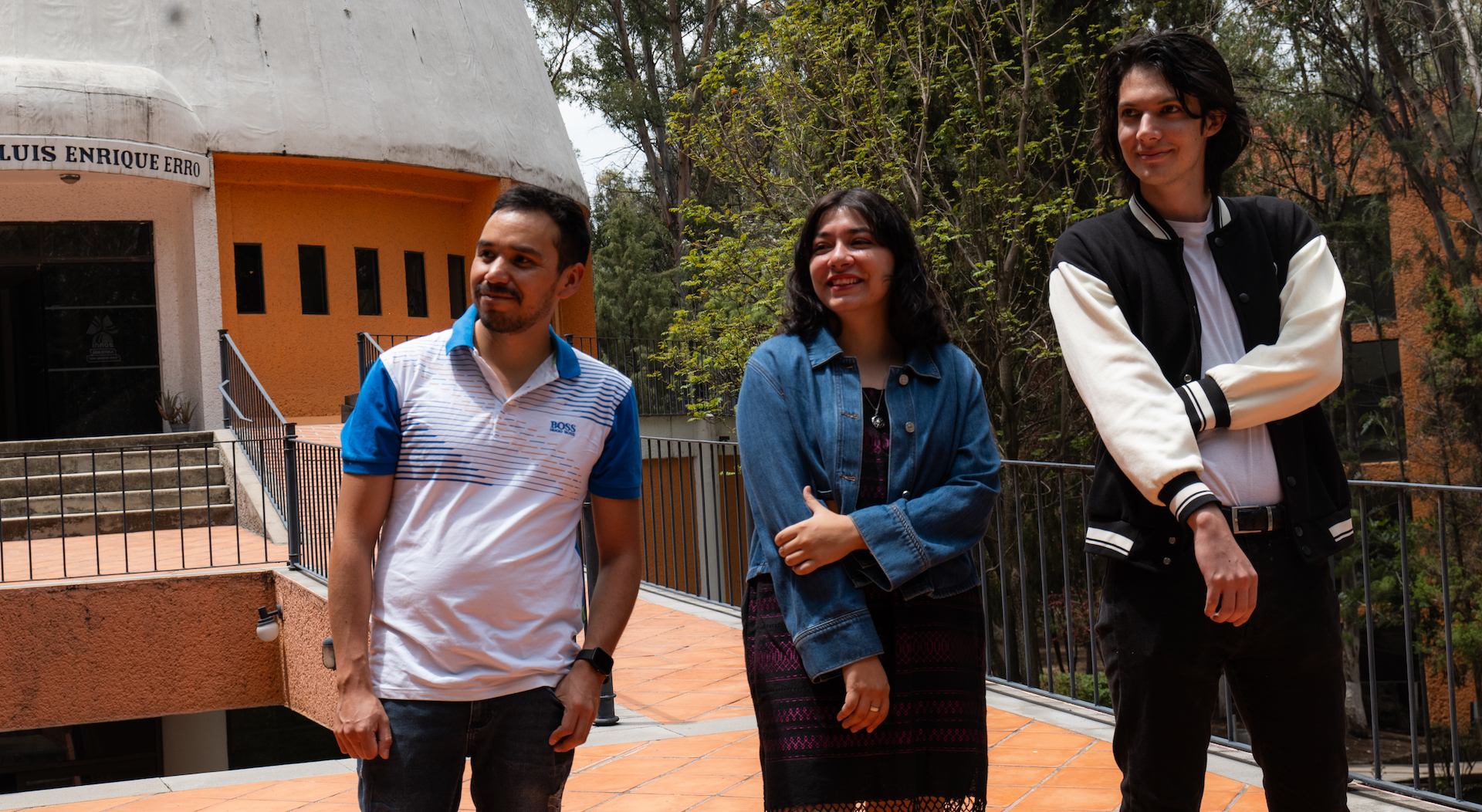INAOE students selected in the “IA 1,000 Talent Development Program”, travel to China
Santa María Tonantzintla, Puebla, June 17, 2024. Analuz Silva Silverio, Carlos Jair Santin Cruz and Arturo Javier Aceves Ramírez, graduate students of the National Institute of Astrophysics, Optics and Electronics (INAOE), a public center coordinated by the National Council of Humanities, Sciences and Technologies (Conahcyt), traveled to China a few weeks ago after being selected in the “IA 1,000 Talent Development Program”, organized by the Center for Research and Innovation in Information and Communication Technologies (Infotec) and supported by Huawei Technologies de México S. A. de C. V.
The IA 1,000 Talent program promotes and encourages the training of specialized talent in Artificial Intelligence (AI), through a training program with an intercultural focus.
The project consisted of two phases: the first, in which 1,900 people participated, was a virtual training and a certification exam - the Huawei Certified ICT Associate - Artificial Intelligence - as well as a two-week course in China; in the second phase, the people with the best scores participated and were divided into two groups: the first traveled to China from April 28 to May 11 and the second one from May 12 to 25.

For Analuz Silva, a PhD student in Computer Science, this experience was very interesting: “many people in Mexico and in the West have no idea what there is in China; it is interesting to see their evolution and achievements in areas where they had deficiencies and have evolved their urban and social development.”
She says that, with this experience, she was able to see how the models that are used now influence the development of society and, on the technical side the course was complete
“A good part of what I do in the doctorate, which is neural network design, is related to the course on neural networks and deep learning that we had there. It complements what I am doing now, since I work with generative models and pattern recognition, in this case, applied to the new mapping of submillimeter galaxies that the LMT is doing for analysis and study in the area of cosmology”.
Carlos Jair Santin Cruz, a PhD student in Electronics, says that he learned a lot with the course in China: “I do not have the knowledge that someone from Computing has because I am in Electronics, but it did help me to know the framework to work with neural networks. In addition, they also took us to see certain places and parts of Chinese culture. They are very proud of their culture and show it to the people who go there. We went to the company in Shenzhen and there they gave us a talk about how they incorporated artificial intelligence into the economy and how AI impacts it”.
The most interesting thing about his experience was, perhaps, “seeing that technology and everything that one develops is going to be applied in the future and that it does have an impact on society. In China you can see that what you read in articles ten years ago is being applied now.”
Finally, Arturo Javier Aceves Ramírez, a student of the Master's in Space Science and Technology, indicates that he participated in the call, “more than anything, because AI is no longer an extra work tool, but it is fundamental for any area of science.”
He adds that what he saw of Chinese culture and society impacted him in a positive way:
“It was very interesting to see the cities we were in. One of the cities is young and very well planned. As for the AI course, we focus more on the neural networks and image processing part. Neural networks are something necessary in practically any field and, in my case, I am going to apply it in the image processing and object detection part to avoid collisions with a tracking drone. With this, we will recognize when there is an object, how far away it is and how much it has to correct its path to avoid crashing into something.
To conclude, he recommended all students to participate in these calls, because “they are a great opportunity, they help our work and strengthen relations with the outside world, and to make an important network of contacts.”
Luis Enrique Erro # 1, Tonantzintla, Puebla, México, Código Postal 72840, Tel: (222) 266.31.00, difusion@inaoep.mx
This work is licensed under a Creative Commons Attribution-NonCommercial-NoDerivs 2.5 Mexico License.


